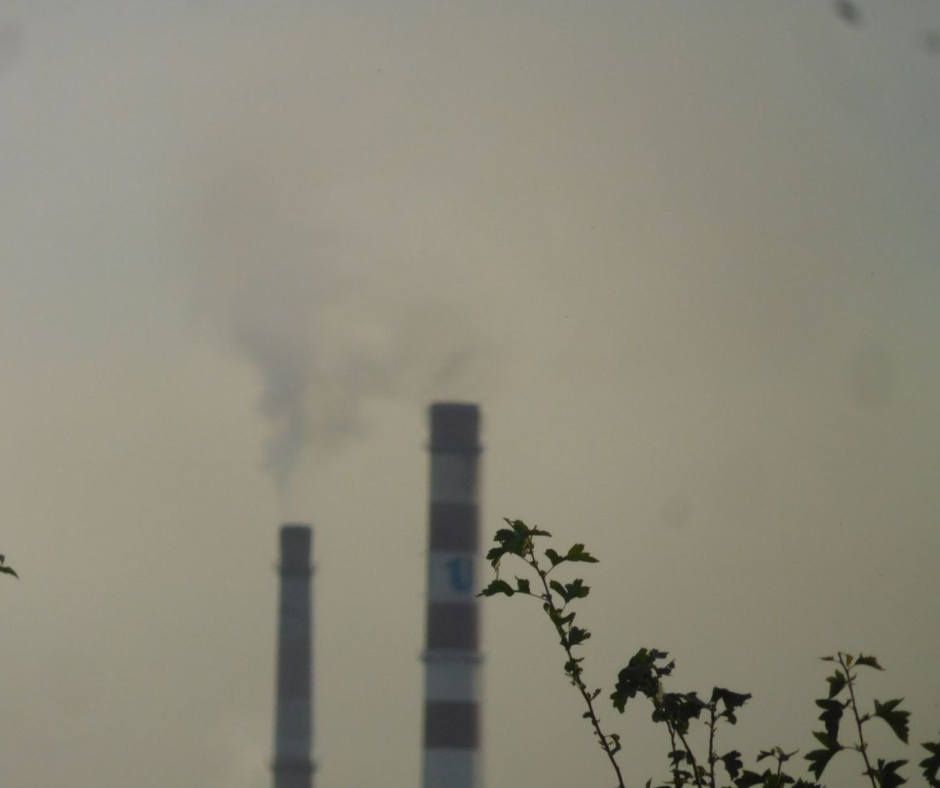“Volyn-Cement” in Zdolbuniv has received a positive conclusion on its environmental impact assessment (EIA). This means that the plant was allowed to operate despite the inaccuracies in the report: the company plans to burn fuels that could pollute the environment and affect human health. The positive conclusion on the EIA of Volyncement shows that the rules and regulations of the law are being violated during the war in Ukraine.
What is the problem, and how did the Ministry justify allowing the plant’s planned activities?
Background
Ecoclub analyzed the plant’s EIA report and identified possible hazards. Therefore, we proposed to the Ministry of Environmental Protection and Natural Resources of Ukraine (hereinafter – the Ministry) not to issue Volyn-Cement a conclusion allowing the plant to use new types of waste for incineration.
Instead, the Ministry allowed such activities and stated that the plant could operate if it assessed its impact during another design stage.
What the Ministry said
The Ministry has assessed Volyn-Cement’s report to use only the alternative fuel studied by the State Institution “O.M. Marzieiev Institute for Public Health” of the National Academy of Medical Sciences of Ukraine. Therefore, if the plant plans to use other types of waste, they need to be further analyzed.
To use the waste specified in the report, Volyn-Cement must carefully analyze its impact on the Emerald Network, a European protected area. Subsequently, the company should provide the Ministry of Ecology with information containing measures to mitigate possible adverse effects.
Before the start of the planned activities, Volyn-Cement should implement the following measures and submit the results to the Ministry of Environment:
– identify and establish sanitary protection zones for the production site following the requirements of the State Sanitary Rules.
– obtain certificates for the use of alternative fuels. - Investigate the impact on the air, considering the possible modes of operation of the rotary kiln (depending on the type and amount of each fuel).
– investigate the impact on climate and microclimate due to possible changes in the quantitative composition of greenhouse gases.
– investigate the possible impact on the Emerald Network – Zdolbuniv Ponds.
– provide information on reducing the need for fossil fuel use due to the activity.
– provide the Ministry of Ecology with information on emissions and morbidity in Zdolbuniv over the past five years.
The Ministry of Environment also imposed other restrictions:
- no preparatory or construction work during the planned activities.
– do not increase the capacity of the cement and clinker production facility.
– use RDF fuel (made from various types of waste) and biomass only if certified and has a conclusion of the State Sanitary and Epidemiological Expertise and a permit for air pollutant emissions.
– calculate the amount, type, and composition of waste generated at the enterprise and submit statistical reports.
– do not mix waste; ensure its proper storage and warehousing.
– do not use untreated and unprocessed waste that does not meet the requirements of alternative fuels (unshredded, unsorted) as an alternative fuel at the industrial site.
Before using alternative fuels, additionally assess the environmental impact of measures on
– management of household and other waste (treatment, processing, recycling, disposal, removal, neutralization, and burial) in the amount of 100 tonnes per day or more;
– hazardous waste management;
– disposal, removal, treatment, neutralization, and burial of household waste.
According to the conclusion of the Ministry of Ecology, VolynCement should carry out post-project monitoring:
– Develop, approve, and submit a post-project monitoring plan to the authorized central body before starting the activities specified in the report.
– Publish the results of post-project monitoring. Send them for publication on the website of the affected Zdolbuniv community (if there is no plant website).
Can the plant operate
The plant must fulfill all the Ministry of Environment requirements before using the waste specified in the EIA report. At the moment, VolynCement can operate within its previous activities. In addition, the plant’s air emissions permit is outdated (valid until 11 July this year). At the same time, Ecoclub experts have not found a new license in open sources.
“Obtaining such a permit was a prerequisite for this EIA report, which by its name contains a different type of study: “waste management.” Therefore, we do not know whether the company operates legally,” says Yulia Kvitka, EIA coordinator at the Ecoclub.
The Zdolbuniv City Council published a notice on its website about the permissibility of the plant’s operation. Citizens could not fully participate in the VolynCement case because they were denied access to information on environmental protection. The website of the Zdolbuniv City Council states that the positive EIA conclusion allows the plant to carry out the work planned in the report:
“This means that the local population is not informed about the possible risks, consequences and conditions of such activities,” says Kvitka.
“The information from the company about the use of high temperatures during the technological process does not yet indicate that the temperature is maintained and controlled at least 850 degrees at the cold end of the furnace. Only such a measure will prevent the restoration of toxic substances such as furans and dioxins.”
What are the violations in this case?
– The title of the EIA report does not correspond to its content; it does not contain the information required for this activity (in the field of waste management).
– The conclusion was issued without considering the possible negative impact on the Emerald Network and the consequences of mitigation.
– Access to information and public participation was not properly ensured: the public was not informed about the results of the environmental impact assessment procedure and the final decision on the planned activities will be made without public participation (according to the requirements of the conclusion, the plant must send all research information and documentation to the Ministry, which will make the decision):
“The plant does not consider it expedient to inform the public about the planned activities using modern information and media resources: communication between designers in the form of video conferences, discussions on social networks and via telegram channels, announced television discussions,” says Zdolbuniv resident Ihor Benesiuk.











